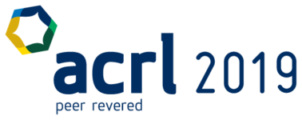Session Description:
This panel session provides an opportunity to learn about Library Diversity Residencies through the experiences of Library Diversity Residents and a Residency program director. A panel of two current residents, one former resident and a residency program director will discuss the design of their residencies, practical skills gained, suggested new approaches and work-preparedness after a residency. Participants will come away with a more holistic understanding of diversity residencies from multiple perspectives. This knowledge will hopefully lead to new ideas of how to recast and design residencies to better suit new librarians and increase the diversity in the profession.
